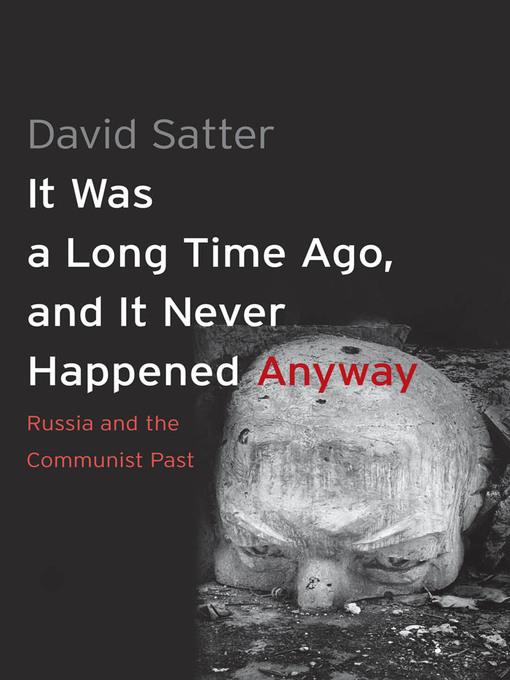
It Was a Long Time Ago, and It Never Happened Anyway
Russia and the Communist Past
- اطلاعات
- نقد و بررسی
- دیدگاه کاربران
نقد و بررسی

October 24, 2011
Satter (Age of Delirium: The Decline and Fall of the Soviet Union), a Hudson Institute fellow and former Moscow correspondent for the Financial Times, amasses over two decades of research and reporting in a startling book that revisits the history, symbols, and repressive tools of the deposed Soviet state and the crushing grip of amnesia imposed on citizens since the fall of the Communist regime. Despite the millions prosecuted and killed during the many Soviet purges and mock trials, Satter boldly states that today’s average Russian is not interested in re-evaluating the past, but merely surviving and avoiding any mention of “bad things in our history.” Some think of the Brezhnev years as good times, when the terror abated and the government provided economic security. Satter concludes that the failure of a “historically enslaved population” to confront the “authoritarian instincts” on which communism was built leaves Russia vulnerable to a resurgence of those instincts. Drawing on interviews with Russian citizens and officials, Satter’s reflective, expert analysis of a Russian society in moral and cultural flux after the end of communism provides great food for thought beyond today’s headlines.

November 1, 2011
Sober, trenchant exploration of the need for settling the crimes of the Soviet Union with history. The Soviet Union collapsed in 1991, yet a proper reckoning over its 73 years of totalitarianism has not yet been achieved, writes Hudson Institute senior fellow Satter (Darkness at Dawn: The Rise of the Russian Criminal State, 2003, etc.). Reflecting his own visits to Russia, the author looks at various facets of Russian society with an eye on the Soviet past--e.g., national monuments, textbooks, the election of Vladimir Putin and rehabilitation of many of Soviet leaders--and he questions why a moral reflection has not penetrated very deeply. Many Russians look back at the Soviet era as a time of solidity and security, when everyone had jobs and were taken care of by the state, and the Soviet Union was perceived as powerful. The election of Putin has reinforced a dangerous tilt toward nostalgia, as one of his first acts when assuming power in 2000 was to restore a plaque commemorating his former KGB boss, Yuri Andropov, the "cold-blooded" autocrat. Even though the crimes of the Soviet regime eventually became known to the people, the dossiers of KGB informers were swiftly closed by law in 1992, and President Yeltsin's attempts to ban the Communist Party in 1994 were largely foiled. Putin's proposal to reintroduce the Soviet national anthem "enabled Russians to be proud of the Soviet-era achievements," but without the essential moral introspection. Throughout Satter's journeys across Russia, he witnessed the struggle between forces of remembrance and forgetting. A fascinating, deeply thoughtful and researched study that contributes mightily to the ongoing humanist debate.
(COPYRIGHT (2011) KIRKUS REVIEWS/NIELSEN BUSINESS MEDIA, INC. ALL RIGHTS RESERVED.)




دیدگاه کاربران